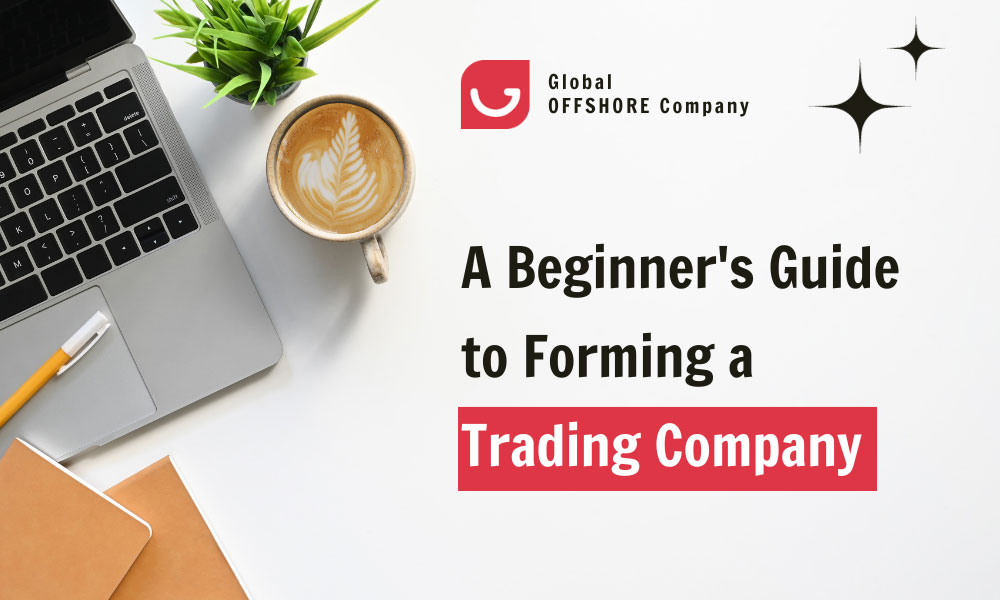Uncovering the Secrets of Trading Companies: An Overview
In today's globalized economy, trading companies play a crucial role in facilitating international commerce. These companies act as intermediaries, connecting buyers and sellers across different markets and enabling the smooth flow of goods and services. This article provides an in-depth overview of trading companies.
What is a trading company ?
A trading company can be defined as an entity that engages in the business of buying and selling various goods and commodities. It serves as an intermediary between manufacturers or producers and the end consumers. By facilitating the exchange of products, a trading company helps streamline the distribution process and enables businesses to reach a wider market.

Types of trading companies
In the realm of commerce, there exist various classifications of trading companies, each with its distinct characteristics and practices. These enterprises engage in the exchange of goods and services across different markets. Here, we will explore the diverse types of trading companies and shed light on their unique attributes.
- Wholesalers: Wholesalers serve as intermediaries between producers and retailers. They purchase goods in bulk from manufacturers and sell them in smaller quantities to retailers. Wholesalers often operate large warehouses to store their inventory, allowing them to meet the demands of retailers promptly.
- Retailers: Retailers are the bridge connecting wholesalers and consumers. They acquire goods from wholesalers or directly from manufacturers and make them available to the general public through physical stores or online platforms. Retailers typically focus on selling products directly to customers, providing convenience and a wide range of options.
- Importers and Exporters: These trading companies specialize in international trade, either by importing goods from foreign markets or exporting domestic products to international buyers. Importers carefully select products from overseas suppliers and bring them into their home country, while exporters identify foreign markets interested in their products and facilitate their distribution abroad.
- E-commerce Companies: With the rise of the internet, e-commerce has become an increasingly popular trading method. E-commerce companies operate online platforms where buyers and sellers can engage in transactions without physical interaction. These platforms offer convenience, broader market reach, and the ability to trade across borders with ease.

- Commodity Trading Companies: Commodity trading companies focus on the buying and selling of raw materials or primary goods such as oil, metals, agricultural products, and more. They often operate on a global scale, leveraging their expertise and networks to navigate the complex commodity markets.
- Service Trading Companies: Unlike the previously mentioned types, service trading companies do not deal with physical products. Instead, they offer various services such as consulting, IT solutions, financial services, and more. These companies trade their specialized knowledge and expertise to assist other businesses or individuals.
- Franchise Companies: Franchise companies engage in a specific type of trading arrangement where they grant individuals or entities the right to operate under their established brand. The franchisees benefit from the brand's reputation and support, while the franchisors expand their market presence and generate revenue through franchise fees and royalties.4
- Multinational Corporations: Multinational corporations (MNCs) are large-scale trading entities that operate in multiple countries. These companies establish subsidiaries or branches in various nations to tap into different markets and benefit from economies of scale. MNCs often possess significant resources, allowing them to engage in extensive global trade and investment activities.

Trading companies activities
1. Sourcing and Procurement: One of the primary functions of a trading company is to identify reliable suppliers and manufacturers from different countries. They establish strong relationships with these suppliers to ensure a steady supply of quality products.
2. Market Research: Trading companies conduct extensive market research to identify potential markets and analyze consumer trends. This helps them make informed decisions about which products to import or export.
3. Import and Export: Trading companies handle all the logistics involved in importing and exporting goods. They manage documentation, customs clearance, transportation, and storage, ensuring that goods reach their destination efficiently and on time.
4. Quality Control: To maintain customer satisfaction and uphold their reputation, trading companies perform quality control checks on the products they import or export. They ensure that the goods meet the required standards and specifications.
5. Negotiation and Pricing: Trading companies negotiate with suppliers and customers to secure the best possible prices for the goods they trade. They leverage their expertise and market knowledge to strike favorable deals for all parties involved.
6. Risk Management: International trade involves various risks, such as currency fluctuations, political instability, and legal complexities. Trading companies mitigate these risks by implementing risk management strategies and staying updated on global trade regulations.

How does it work ?
A trading company acts as an intermediary between suppliers and buyers, facilitating the exchange of goods or services. It conducts market research to identify profitable opportunities and sources products from suppliers. The company negotiates contracts, arranges logistics, and manages shipping and customs clearance. Simultaneously, it seeks out potential buyers through marketing and networking. Once a buyer is secured, the trading company handles the transaction, ensuring timely delivery and managing financial aspects. Overall, a trading company plays a vital role in connecting suppliers and buyers, managing the trading process, and ensuring a smooth exchange of goods or services.
Benefits of having a trading company:
1. Global Market Access: Trading companies provide businesses with access to a vast network of suppliers and customers worldwide. They help companies expand their reach and tap into new markets, enabling growth and profitability.
2. Expertise and Knowledge: Trading companies possess extensive knowledge of international trade regulations, market trends, and cultural nuances. They provide valuable insights and guidance to businesses, helping them navigate the complexities of global trade.
3. Cost Efficiency: By leveraging economies of scale and their extensive network, trading companies can negotiate better prices for goods and services. This cost efficiency benefits both the businesses they serve and the end consumers.
4. Risk Mitigation: Trading companies assume certain risks on behalf of their clients, such as currency fluctuations or political instability in foreign markets. They have the expertise to manage these risks effectively, minimizing potential losses.
5. Time and Resource Savings: Outsourcing the import-export process to a trading company saves businesses valuable time and resources. Companies can focus on their core competencies while leaving the complexities of international trade to the experts.

Conclusion
So have you chosen your right corporate entity yet ? It is worth noting that any type of entity requires a plethora of sophisticated documentation and processes so please CONTACT G.O.C RIGHT NOW to receive the greatest offer and save time.
Explore our next article for detailed guides to establish trading companies.
Disclaimer: While Global Offshore Company (G.O.C) endeavors to provide timely and accurate information on this website, the content is intended for reference purposes only. The information presented in this article should not be considered a replacement for qualified legal advice. For personalized guidance on your specific circumstances, we encourage you to reach out to G.O.C's experienced consultants.








